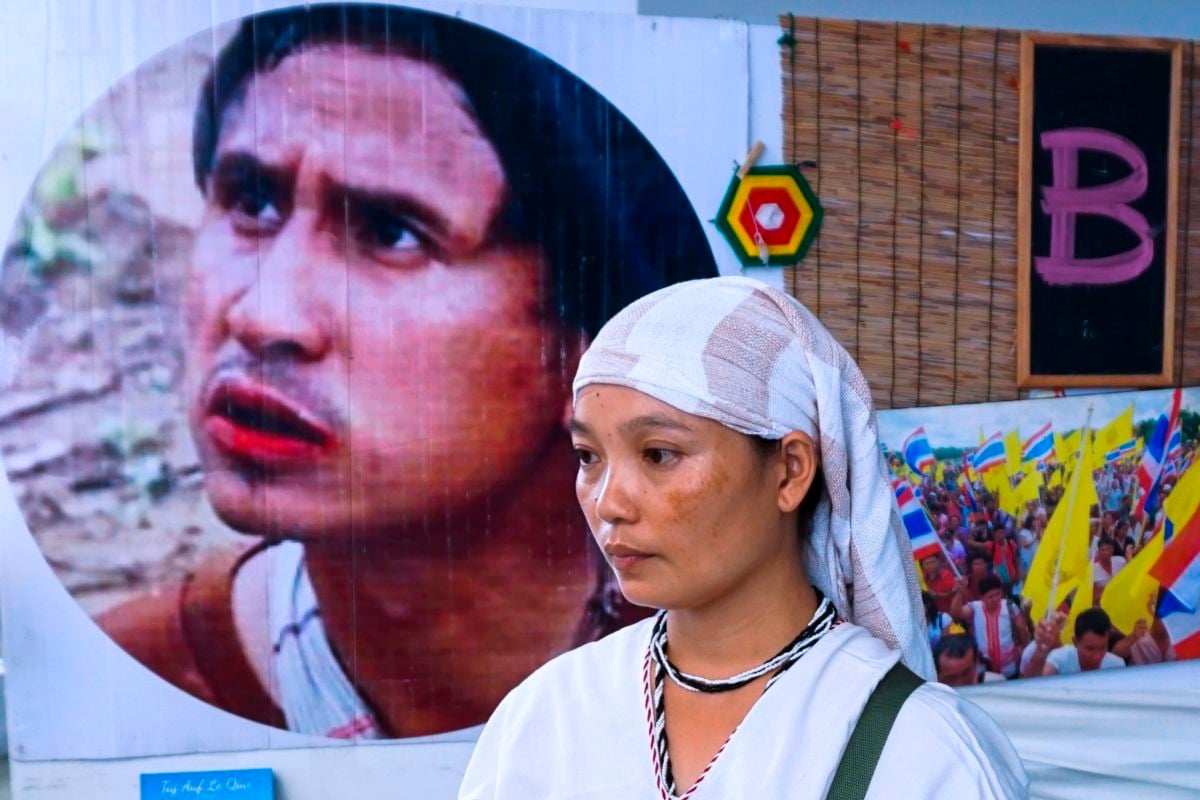Over the past month, millions of people all over the world have mobilized to call attention to the climate disaster. Young people are demanding action to confront climate change, many of them inspired by 15-year-old Swedish activist Greta Thunberg.
But Thunberg is not the only climate activist we should recognize: there are thousands of climate activists from indigenous communities and the Global South who have been killed or imprisoned. This has also occurred in the United States.
On July 11, 2018, political prisoner and indigenous water protector Red Fawn Fallis was sentenced to 57 months in federal prison. She was one of several water protectors arrested and charged in federal court after the massive military raid that illegally seized Standing Rock Sioux land in 2016 to facilitate the construction of the Dakota Access Pipeline.
Red Fawn Fallis, convicted of “civil disorder” and “possession of a firearm and ammunition by a convicted felon,” publicly maintained her innocence throughout her trial. But she was forced to accept a guilty plea deal after being refused a fair trial by the U.S. court system: the judge presiding over her trial prohibited the use of treaty rights as evidence, even though her arrest took place on unceded and treaty-protected indigenous land.
The incarceration of Red Fawn Fallis and other water protectors has occurred in the context of the incarceration and assassination of indigenous environmental activists worldwide. In 2018, at least 164 environmental activists were murdered—although this is widely considered a serious undercount—and many more were targeted with severe physical violence, incarceration or anti-terrorism initiatives. And at least 1,558 more were murdered from 2002 to 2017.
Almost every activist murdered in 2018 was in a Global South country still impacted by the political and economic imperialism of northern corporations and states. Prominent examples include the Philippines, which has a long history of U.S. intervention; Brazil, whose forests are being cleared for U.S. logging, agribusiness, and illegal gold mining; and Guatemala, Honduras, and Mexico, where land grabbing and indigenous genocide continue to be carried out by private U.S. corporations and the countries’ U.S.-backed militaries. Meanwhile, in the United States itself, indigenous water and land protectors are incarcerated, and climate refugees from the Bahamas are criminalized as “drug dealers” and denied entry after the worst hurricane in the nation’s history, videos of which showed parts of the Bahamas under several feet of water.
It is clear that the effects of climate destruction will first be felt by indigenous people, black people, and residents of the Global South. Disaster capitalism, extractivist economic relations, imperialist economic relations and increased border policing are creating a climate apartheid, in which the extraction of labor and natural resources for the benefit of colonizers destroys the land, water, and air on indigenous, black, and Global South territories.
The Dakota Access Pipeline leaked toxins into the water supply of the Standing Rock Sioux five times within the first six months of its construction. Majority black Flint, Michigan, still lacks clean water five years after Michigan governor Rick Snyder first switched the city to a polluted water supply. Hurricanes such as María and Dorian are devastating Caribbean nations, while the United States, their closest and wealthiest neighbor, actively prevents aid and recovery efforts. And indigenous lands in the Brazilian Amazon are burning so that they can be seized by illegal logging and mining operations. What do these examples have in common?
In each case, profit is being put before the environment, resulting in death, displacement, dramatically reduced quality of life and environmental destruction on a massive scale. This serves to benefit colonizers and capitalists, who silence the voices of those affected through exactly the tactics used against Red Fawn Fallis and other water protectors: criminalization, incarceration, police and military violence, and dispossession of land.
Capitalism is destroying the future of the planet. It is time to defend indigenous people’s right to their land, rather than incarcerating and murdering them for protecting their territory against the interests of the ruling class. The struggle for climate justice cannot succeed if its only goals are a few policy changes to increase industry regulation. Even the Green New Deal is easily reversible, as evidenced by the fate of the original New Deal, which was largely dismantled by 1940.
The struggle for climate justice must include decolonization and anti-imperialism. Climate justice activists need to fight the seizure and destruction of indigenous lands, from Brazil to the United States to the Philippines, and for the freedom of Red Fawn Fallis and all indigenous water and land protectors. The growing movement for climate justice has succeeded in building powerful international networks of solidarity, but it is imperative that this power be directed toward a broader decolonial (and, necessarily, anticapitalist) struggle. All of us are affected by climate change, but not all of us are responsible for causing it. The capitalists caused this mess, but the working class and oppressed will feel its effects first. It’s time to unite to fight against climate destruction, give the land back to the people who have always protected it, and destroy the system that will make the planet uninhabitable for us all.
Join us in defending the truth before it’s too late
The future of independent journalism is uncertain, and the consequences of losing it are too grave to ignore. To ensure Truthout remains safe, strong, and free, we need to raise $27,000 in the next 24 hours. Every dollar raised goes directly toward the costs of producing news you can trust.
Please give what you can — because by supporting us with a tax-deductible donation, you’re not just preserving a source of news, you’re helping to safeguard what’s left of our democracy.
